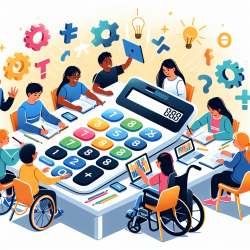The recent study titled Adapting and translating the Mullen Scales of Early Learning for the South African context highlights the importance of culturally and linguistically adapted assessment tools in providing equitable and effective interventions for children. As practitioners in speech-language pathology, leveraging these insights can significantly enhance our practice and outcomes for children.
The Mullen Scales of Early Learning (MSEL) are a comprehensive tool designed to assess various developmental domains in children from birth to 68 months. These include receptive and expressive language, gross motor, fine motor, and visual reception skills. The study conducted by Bornman et al. (2018) successfully adapted the MSEL for four South African languages: Afrikaans, isiZulu, Setswana, and South African English.
Key Findings
- No significant differences in MSEL performance across the four language groups, indicating successful linguistic equivalence.
- Significant differences in MSEL performance across different age groups, validating its effectiveness as a developmental measure.
These findings suggest that the adapted MSEL can be a reliable tool for assessing child development across diverse linguistic backgrounds in South Africa. Here’s how practitioners can implement these outcomes to improve their skills:
1. Utilize Culturally Adapted Tools
Incorporate the adapted MSEL in your assessments to ensure cultural and linguistic relevance. This approach not only provides a more accurate assessment but also helps in planning targeted interventions.
2. Continuous Professional Development
Stay updated with the latest research and methodologies in culturally adapted assessments. Participate in workshops and training sessions that focus on using these tools effectively.
3. Collaborate with Multidisciplinary Teams
Work closely with other professionals, including teachers and occupational therapists, to gain a holistic understanding of a child’s development. The MSEL can serve as a common framework for interdisciplinary discussions and planning.
4. Advocate for Comprehensive Assessments
Encourage the use of comprehensive and culturally adapted tools like the MSEL in schools and clinics. Advocate for policies that support the development and implementation of such tools.
5. Conduct Further Research
Engage in research to further validate and refine the adapted MSEL. This can include piloting the tool in different settings and with diverse populations to ensure its robustness and applicability.
In conclusion, the adaptation of the MSEL for the South African context provides a valuable resource for practitioners. By incorporating these tools and methodologies into our practice, we can ensure more equitable and effective outcomes for children.
To read the original research paper, please follow this link: Adapting and translating the Mullen Scales of Early Learning for the South African context.










